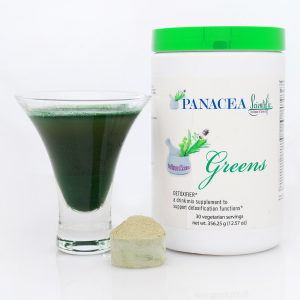
How Green Vegetables and Fruits Can Help You Detox
When people want to detox, they always lean toward fads, quick cleanses, or diets that deliver instant results and gratification. However, we want to let

Vitamin D3 is the natural form of vitamin D, and it is usually produced by our bodies when the skin is exposed to sunlight. Unfortunately, many of us don’t get enough sunlight exposure because we spend most of our time indoors. That’s why taking a vitamin D supplement is so important.
The ideal amount of vitamin D depends on your age. People between 1 and 70 should take approximately 15 micrograms, or 600 International Units of vitamin D. Older people need to take approximately 20 micrograms, or 800 International Units per day because their skin is no longer able to absorb as much vitamin D from sunlight.
The ideal amount also depends on your health and how much you naturally get through sunlight exposure. Our Omega with D3 supplement contains 500 International Units, so you should take one or two softgels per day. It’s safe to take up to 4,000 International Units per day, so this amount is safe, even if your diet contains some vitamin D.
Vitamin D is important for many of the body’s functions. In the long term, a shortage makes the bones more brittle and prone to breaking, so it increases a person’s risk of developing osteoporosis. It also causes muscle pain and weakness, so patients with a deficiency are more likely to fall.
It is not yet sure whether vitamin D affects people’s risk of developing cancer, but some studies suggest that patients with high levels of vitamin D are less likely to die from this condition. Vitamin D also improves the brain’s function, regulates blood sugar levels, and strengthens the nerves.
Very few foods naturally contain vitamin D, so it’s hard for most people to get enough of it. You might get some vitamin D in your diet if you frequently eat fatty fish, fish liver oils, egg yolks, beef liver, mushrooms, and cheese. In the US, some foods like milk, plant-based milk, and cereals are fortified with vitamin D. Typically, one cup of milk contains 120 IU of vitamin D.
The body also produces vitamin D when the skin is exposed to direct sunlight, but not when the light has passed through a window. Because many of us don’t spend enough time outdoors, we could have a vitamin D deficiency, especially in winter.
Sunscreen limits vitamin D production, but it’s important because it protects the skin from damaging UV rays. Don’t stop wearing sunscreen when you go outside because you could develop skin cancer. Instead, take a natural vitamin D supplement.
If you’re pregnant or breastfeeding, speak to your doctor before taking Omega with D3. The supplement might not be suitable for you. Don’t take vitamin D if you have kidney problems, sarcoidosis, or a high amount of calcium or potassium in your blood.
Unlike many other vitamins and minerals, vitamin D isn’t abundant in food. That’s why most people need to take a supplement. At least 25% of Americans aren’t currently getting enough vitamin D, and they are more likely to develop certain medical conditions. Call us at Panacea Scientific to find out more about Omega with D3 and our other natural supplements.

When people want to detox, they always lean toward fads, quick cleanses, or diets that deliver instant results and gratification. However, we want to let

If you’ve been considering using probiotics to improve your gut health and immune system, you may have questions such as, “Should I take my probiotic

Understanding nutrition and what you can do to improve your body’s health is vital to planning to meet your nutrition and wellness goals. Phytochemicals are

Payment types accepted:
Visa/MC/Discover/ American Express
© Copyright Panacea Scientific 2020. All rights reserved. | Website by Infinite Web Designs